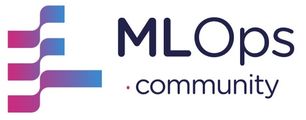Machine Learning Zoomcamp
Learn machine learning engineering in 4 months (September 2021 – December 2021). Online and free!
Plan:
- Introduction to Machine Learning (06 September 2021)
- Machine Learning for Regression (13 September 2021)
- Machine Learning for Classification (20 September 2021)
- Evaluation Metrics for Classification (27 September 2021)
- Deploying Machine Learning Models (04 October 2021)
- Decision Trees and Ensemble Learning (11 October 2021)
- Midterm Project (18 October 2021)
- Neural Networks and Deep Learning (01 November 2021)
- Serverless Deep Learning (08 November 2021)
- Kubernetes and TensorFlow-Serving (15 November 2021)
- Kubeflow and KFServing (22 November 2021)
- Capstone Project (22 November 2021)
- Article (22 November 2021)
Logistics:
- Each week, there’s a lecture and a homework assignment.
- We have two projects: in the middle of the class and a capstone project at the end. Those who complete these two projects get a certificate.
- For homework, projects and other activities, you’ll get scores. At the end, we’ll publish the list of top 100 participants on our website.
The schedule and the plan are work in progress.
Introduction to Machine Learning
Course overview and logistics – Monday, 06 September at 17:00 CET
- Understanding machine learning and the problems it can solve
- CRISP-DM: Organizing a successful machine learning project
- Setting up the environment
- Quick introduction to Python, Numpy, Linear algebra and Pandas
Machine Learning for Regression
Predicting the price of a car – Monday, 13 September at 17:00 CET
- Creating a car-price prediction project with a linear regression model
- Doing an initial exploratory data analysis with Jupyter notebooks
- Setting up a validation framework
- Implementing the linear regression model from scratch
- Evaluating the model: using RMSE
- Performing simple feature engineering for the model
- Keeping the model under control with regularization
Machine Learning for Classification
Predicting churning users – Monday, 20 September at 17:00 CET
- Predicting customers who will churn with logistic regression
- Doing exploratory data analysis for identifying important features
- Encoding categorical variables to use them in machine learning models
- Using logistic regression for classification
Evaluation Metrics for Classification
Evaluating the churn prediction model – Monday, 27 September at 17:00 CET
- Accuracy as a way of evaluating binary classification models and its limitations
- Determining where our model makes mistakes using a confusion table
- Deriving other metrics like precision and recall from the confusion table
- Using ROC and AUC to further understand the performance of a binary classification model
- Cross-validating a model to make sure it behaves optimally
- Tuning the parameters of a model to achieve the best predictive performance
Deploying Machine Learning Models
Deploying the churn prediction model – Monday, 04 October at 17:00 CET
- Saving models with Pickle
- Serving models with Flask
- Managing dependencies with Pipenv
- Making the service self-contained with Docker
- Deploying it to the cloud using AWS Elastic Beanstalk
Decision Trees and Ensemble Learning
Credit risk scoring project – Monday, 11 October at 17:00 CET
- Predicting the risk of default with tree-based models
- Decision trees and the decision tree learning algorithm
- Random forest: putting multiple trees together into one model
- Gradient boosting as an alternative way of combining decision trees
Midterm Project
Implement a project end-to-end – Monday, 18 October at 17:00 CET
- Finding a problem and a dataset
- EDA and data cleaning
- Selecting the best model
- Deploying this model as a web service
Neural Networks and Deep Learning
Classifying the images of clothes – Monday, 01 November at 17:00 CET
- Convolutional neural networks for image classification
- TensorFlow and Keras: frameworks for building neural networks
- Using pre-trained neural networks
- Internals of a convolutional neural network
- Training a model with transfer learning
- Data augmentations: the process of generating more training data
Serverless Deep Learning
Serving the clothes classification model with AWS Lambda – Monday, 08 November at 17:00 CET
- Serving models with TensorFlow-Lite
- Deploying deep learning models with AWS Lambda
- Exposing the Lambda function as a web service via API Gateway
Kubernetes and TensorFlow-Serving
Serving the clothes classification model with Kubernetes and TensorFlow-Serving – Monday, 15 November at 17:00 CET
- Understanding different methods of deploying and serving models in the cloud.
- Serving Keras and TensorFlow models with TensorFlow-Serving
- Deploying TensorFlow-Serving to Kubernetes
Kubeflow and KFServing
Serving the clothes classification model with KFServing – Monday, 22 November at 17:00 CET
- Using Kubeflow and KFServing for simplifying the deployment process
Capstone Project
Do a project end-to-end – Monday, 22 November at 17:00 CET
- Finding a problem and a dataset
- EDA and data cleaning
- Selecting the best model
- Deploying this model as a web service
Article
Teach us something – Monday, 22 November at 17:00 CET
- Do some research about a topic that wasn’t covered in the course and write an article about it (with code!)
Don’t forget to register in Slack and join #course-ml-zoomcamp channel.
Team
FAQ
Question: Is it going to be live? When?
Answer: It is, on Mondays at 17:00 CET.
Question: Will it be recorded?
Answer: Yes, everything will be recorded and you can watch the recording when it's convenient for you.
Question: What if I miss a session?
Answer: The sessions are recorded, and you can ask questions in Slack.
Question: How much theory will you cover?
Answer: The bare minimum. The focus is more on practice, and we'll cover the theory only on the intuitive level. E.g. we won't derive the gradient update rule for logistic regression (there are other great courses for that), but we'll cover how to use logistic regression and make sense of the results.
Question: I don't know math. Can I take the course?
Answer: Yes! We'll cover some linear algebra in the course, but in general, there will be very few formulas, mostly code.
Question: How long will the sessions be?
Answer: Not longer than one hour each.
Question: I filled the form, but haven't received a confirmation email. Is it normal?
Answer: Yes. We process the sign-ups once per week. To make sure you don't miss anything, join the #course-ml-zoomcamp channel.
Course community partners
Thank you for your support!




